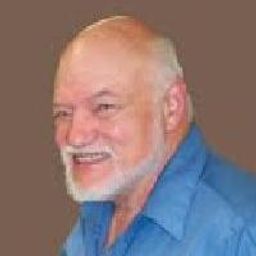
Gerald Nordley is a consulting astronautical engineer and writer with degrees in physics and systems management and a retired USAF officer with experience in spacecraft operations and engineering, With over a hundred publications of nonfiction and fiction, his writing won four "Anlab" readers' awards and nominations for both a Hugo and Nebula award. His stories focus on the human experience in scientifically plausible futures, with many of them in astronomical settings. The latest is "Titan of Chaos" in Life Beyond Us. Gerald was born in Minneapolis, lives in Sunnyvale CA with his wife Gayle Wiesner, and has three adult children and one grandchild. His two novels and five story collections are available from Brief Candle Press. See: www.gdnordley.com.
Sessions in which G. David Nordley participates
Not scheduled
sexta-feira 15 fevereiro, 2019
sábado 16 fevereiro, 2019
domingo 17 fevereiro, 2019
sexta-feira 14 fevereiro, 2020
sábado 15 fevereiro, 2020
domingo 16 fevereiro, 2020
sábado 13 fevereiro, 2021
Despite blowing up prototypes, SpaceX is making amazing progress toward reusable interplanetary spacecraft with hundred ton payloads. While the details change every day, it's time to review where they are and think about what this means for the not very distant future and and the expansion of our "playground" for real.
domingo 14 fevereiro, 2021
How and How Long will it take to get from here to there in space? G. David Nordley will provide some rules of thumb for constructing timelines that involve interplanetary and interstellar journeys. Along the way, he will point out where conventional wisdom is seriously oversimplified in a conservative way, and where one may need to make some hard choices between what is possible and what one might want for a plot.
sexta-feira 16 fevereiro, 2024
From science to history to magic, the world is full of source material for writes if you only know where to look. Our panel of writers, game designers and fellow travelers will discuss how they develop their background to make their creative endeavor more realistic.
Isaac Asimov wrote provocative fiction about the about the role of robots in a futuristic society. His three Laws of Robotics made for fascinating reading. Time has marched on and we are on the cusp of modern automation. Are these laws still relevant? Come find out!
sábado 17 fevereiro, 2024
Arrival, and the Ted Chang story it's based on, take on the problem of communicating with a truly alien lifeform. Back in the real world, people have been communicating with ASL-signing great apes and talking parrots for decades, and debating about whether we are having an actual conversation for almost as long. So, why should we think we'll be able to converse with aliens, and what can we learn from bonobos, elephants and dolphins (among others)?
domingo 18 fevereiro, 2024
Before we contact extraterrestrial civilizations, we can practice communicating with alien intelligences right here. Researchers are trying to create a lexicon of dolphin vocalizations in the Caribbean, elephants communicate in frequencies that humans are just learning to “see” with spectrograms and, as programmers inch their way toward a general AI, the question is if it will “think” in a way we can fathom.
Sessions in which G. David Nordley attends
domingo 14 fevereiro, 2021
Since the dawn of the Satellite age we've been putting man made things into space, particularly around Earth.How much junk is out there? How much of it is useful? How much isn't useful? What is it used for?